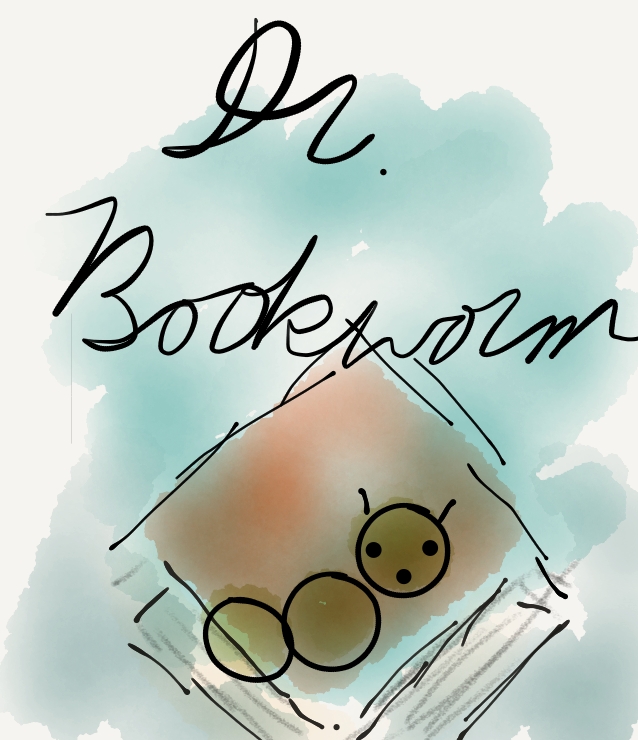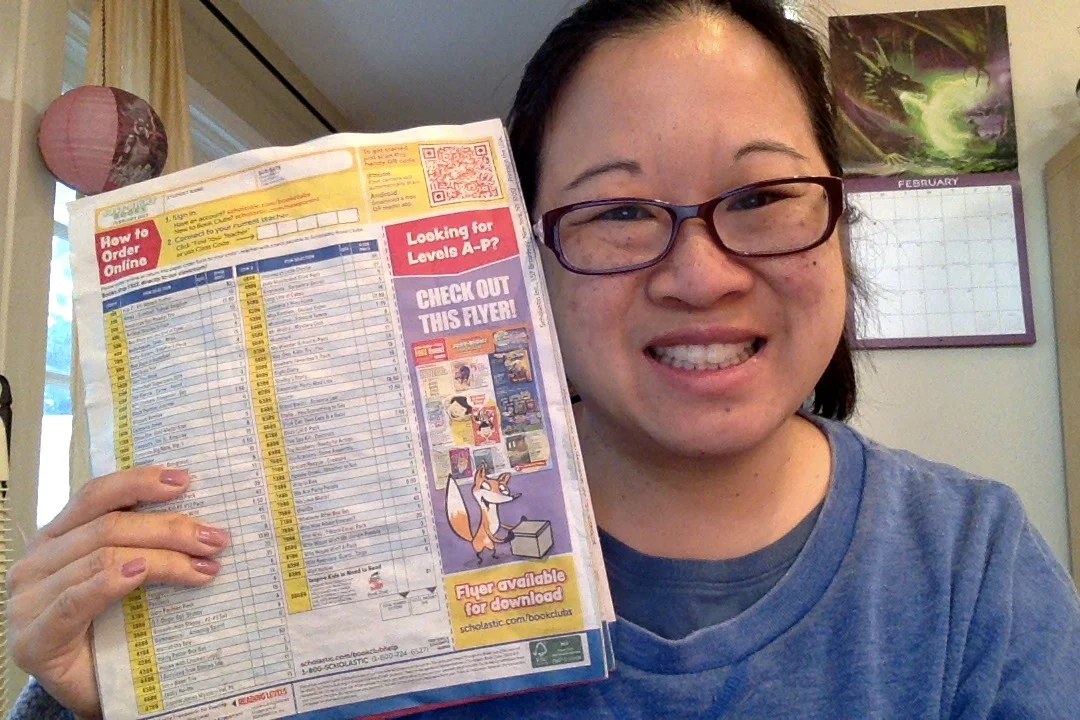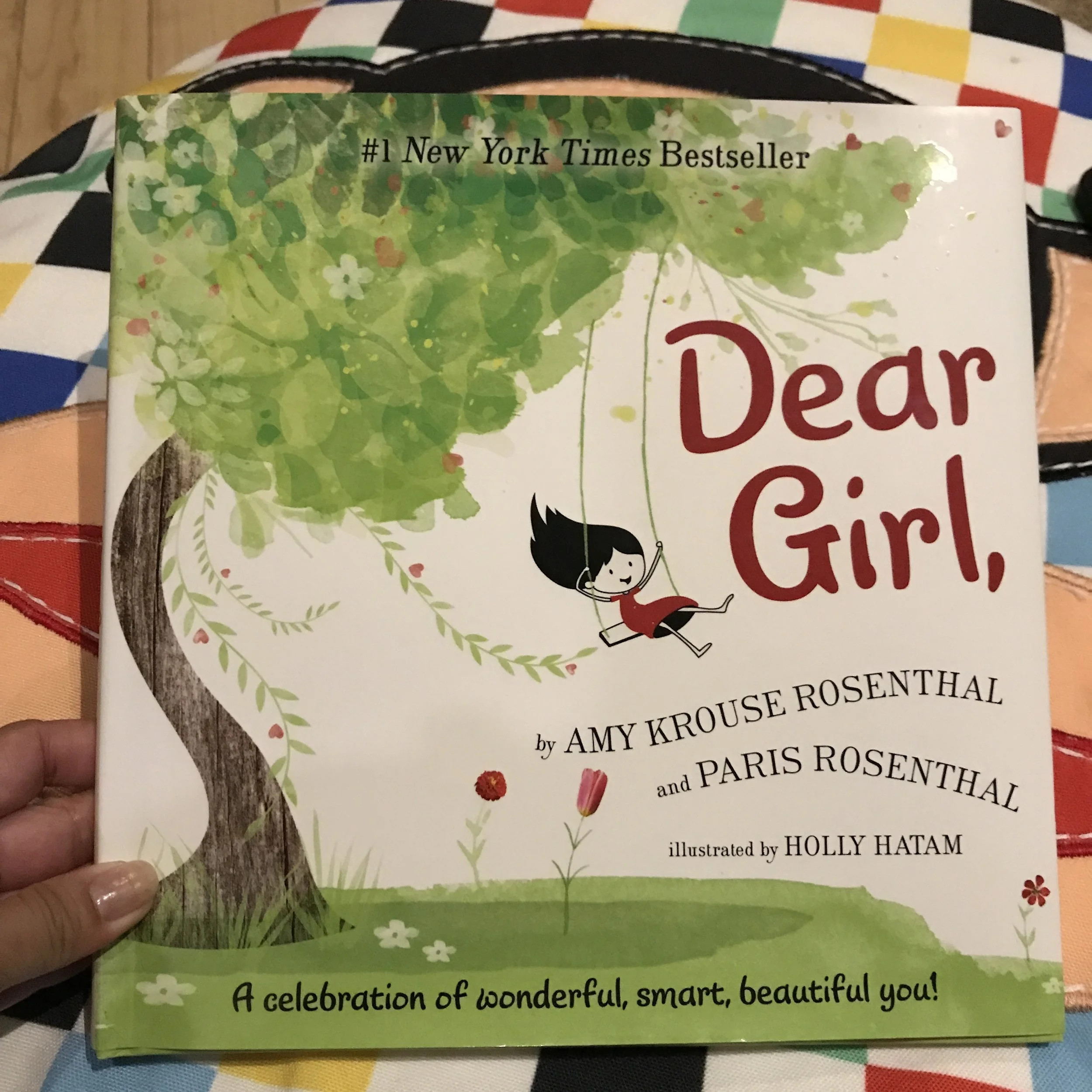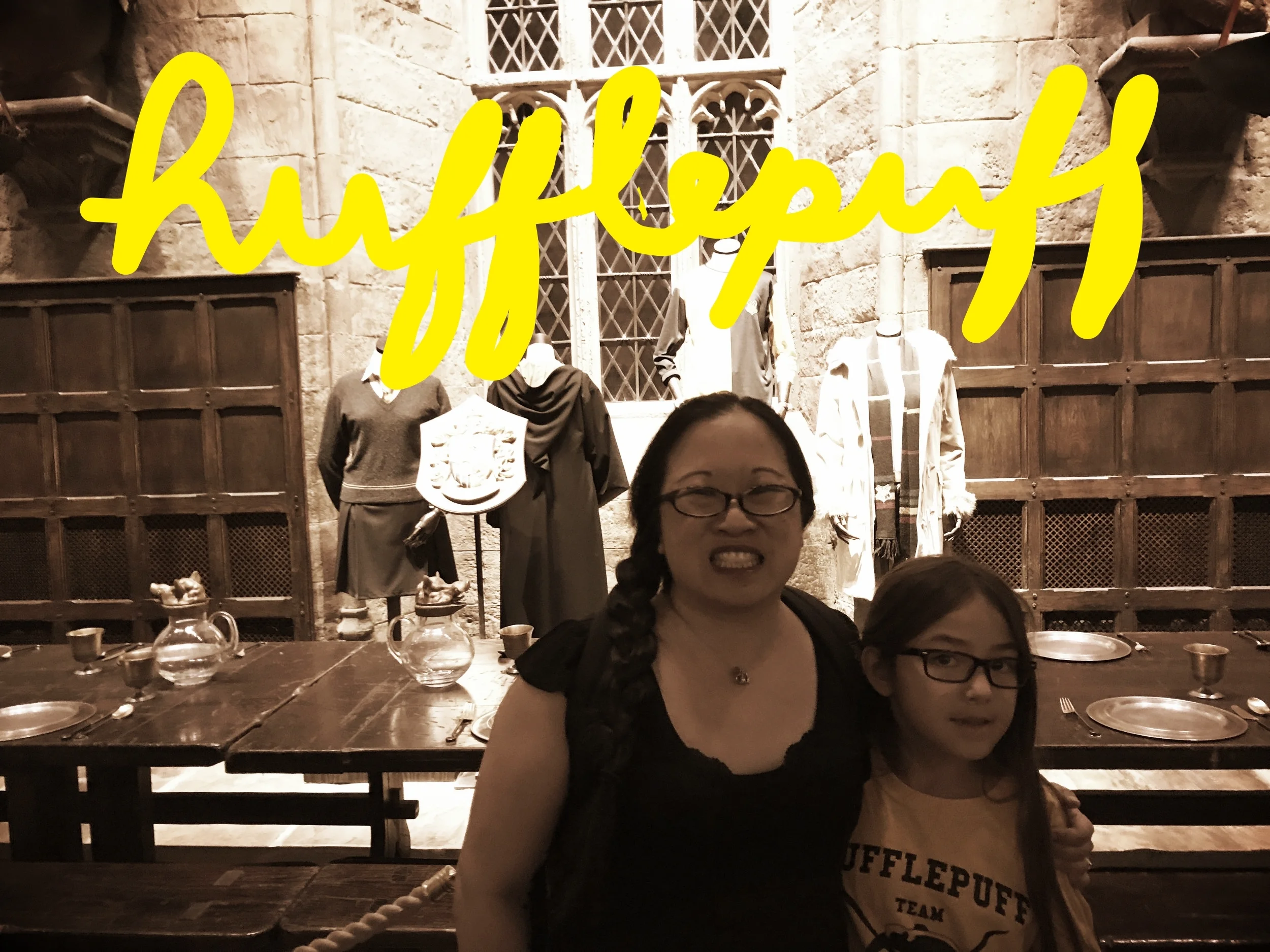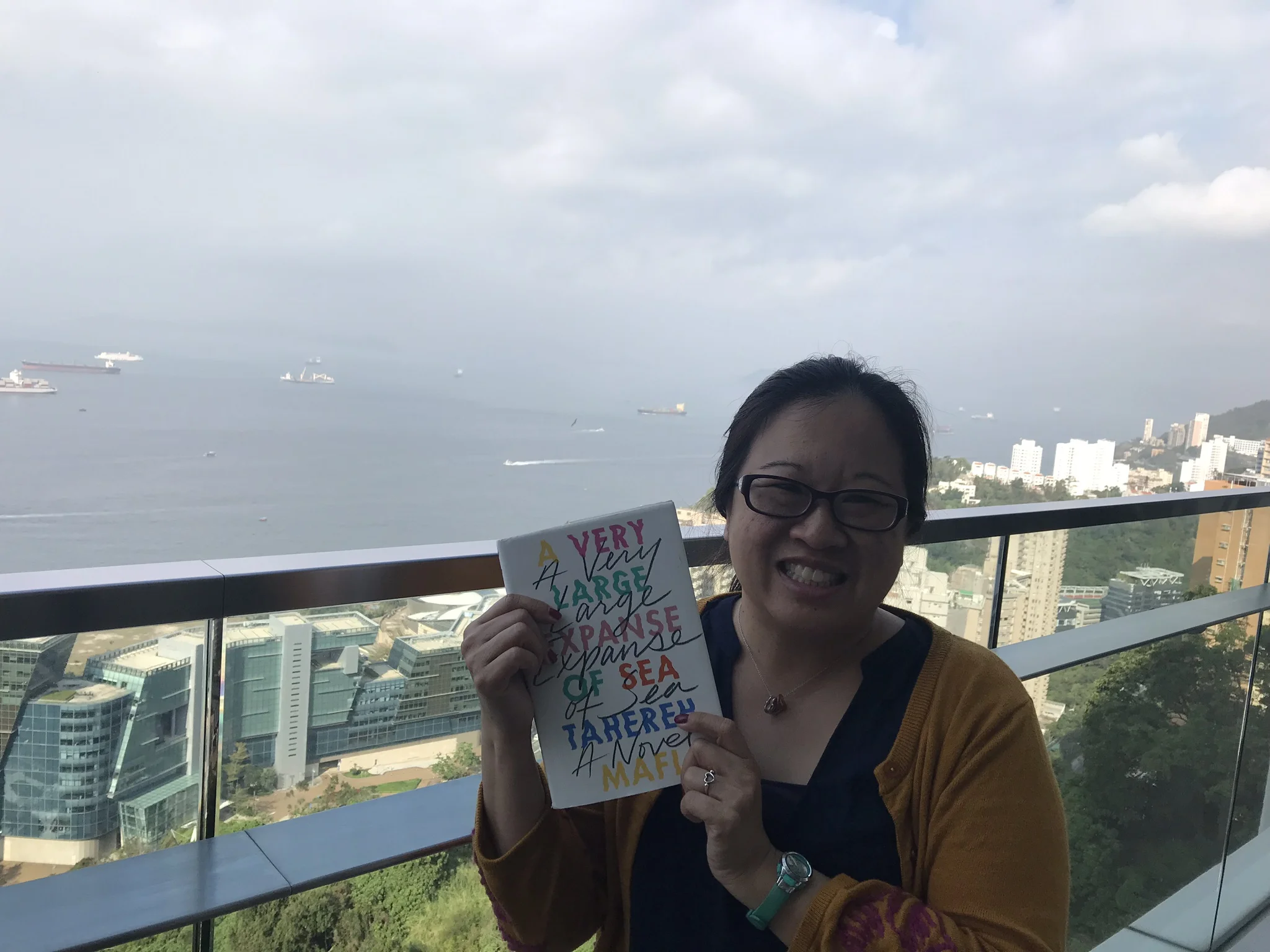A Very Large Expanse of Sea Read-Along Part 1
I’ve been eyeing A Very Large Expanse of Sea for some time now. And I’m happy to say that it both was and wasn’t what I expected when I first picked it up. A great writer goes beyond our expectations and still makes it believable.
What was I expecting? I’m not quite sure. A romance, some prejudice, and some more of the aftermath of 9/11. The thing is….Mafi brilliantly sets the novel in 2002, a year after the tragic events of 2001.
My initial 2 cents: I just loved that Shirin wasn't a stereotypical character—I had no idea how this book would pan out. I love that she was sure of herself, but not at the same time, and that we can see a definite growth in her throughout the book. I can see how the events following 9/11 shaped her anger and fear that I initially thought was a tiny bit over-the-top in the beginning, but realized stemmed from PTSD.
And I'm always a fan of seeing two characters fall in love in an organic, believable way. But that may be because I'm a hopeless romantic.
My notes from Chapters 1-17 (up to page 156):
I was cringing at the beginning because I could imagine Shirin’s feelings about starting at another school yet again, but it is a realistic portrayal of how Shirin would be treated differently than her brother, Navid, after 9/11 as she’s a more ‘visible’ target. I loved how we got to know Shirin’s reasoning for wearing a Hijab as we got to know her too.
The Biology Meet-Cute (sort of): Technically Shirin and Ocean meet when he accidentally bumps into her in the hallway, but I admit that I was squeeing inside when I read that they are biology partners. You know, like Edward and Bella in Twilight? I may be a little too familiar with that series. I didn’t have a meet-cute like this as I went to an all-girl high school (and I’m straight). However, I had good experiences with my Biology lab partners in college, one who wanted to be a surgeon and the other who was also pre-med. They were both understanding when I skipped out on the turtle dissection on principle. I admit that I’m torn about Mini Me’s dissections for 7th grade Science too. But that’s her own choice to make.
p. 97 Ocean and Shirin leaving IHOP: Ocean talks about how Shirin doesn’t see herself the way others do. She misinterprets other people due to what happened to her after 9/11, but he doesn’t know about the attack at the time. She thinks they are judging her solely for her hijab, when they are judging her like any other teen. I can completely imagine Ocean’s point of view when he later says that she looked like she walked out of a magazine. Of course I know that Shirin is separate from the author, but Mafi has a distinct sense of style so I admit that imagined a teen version of her when I read this novel. And I can see how he relates her to one of the models from a fashion magazine.
From the very start, there is an overabundance of “Wow” from both Shirin and Ocean. Why? Is it her word and he picks it up? I’m still trying to decide.
p. 106-109 (Chapters 12-13: Shirin realizes that the anger she is harboring pushes other people away. I especially loved her interaction with Jacobi. “It wasn’t pity. It was recognition.” He tells her she can’t be angry all the time.
p. 150 Shirin and Ocean talking on the phone at night: I love these scenes in which you can sense their bond. Ocean bravely puts himself out there: “Am I imagining this?”. Shirin warns him about the racism to come and he has no clue what he’s in for. Could he really not know? I’m Filipino-Chinese-American and Mr. Bookworm is white. I’m really not sure it ever mattered—maybe because we met at UCLA where there are many mixed couples, most of whom were Asian girl with white boy. The reverse-racism did happen to us—I distinctly remember walking out of a Chinese-American group meeting when they were criticizing all the girls who date white boys. It was uncomfortable, to say the least.
Overall, I was impressed with Mafi’s weaving of culture (Persian and American) in a post 9/11 high school world. I love that Shirin wasn’t who I thought she would be, just like she wasn’t who others in the novel thought she would be either. Initially her anger put me off, but the turning point for me really was when I read about her attack the year before, and with her interaction with her brother’s friend who understood her anger.
AVLEOS isn’t just about racism. It isn’t just about 9/11. And it isn’t just a love story. But, at the same time, it IS a love story, with a different set of obstacles and a different set of main characters. As such, I loved seeing Shirin and Ocean fall for each other as much as I loved learning more about breakdancing and Persian culture. And it’s also all about family, something that’s close to my heart. Navid consistently supports Shirin, whether she realizes it or not.
I had much more I wanted to say, but will cut it off here for now. Thank you to my friends who joined me on the read-along and for their input on the novel, here and in person.
From one friend (posted with permission):
As a middle eastern (Persian) woman who went to high school pre 9/11, it was interesting to see how things have changed, as this was definitely (and luckily) not the experience I had in high school with a different name and ethnicity compared to so many of my peers.
I felt that the author reflected the Persian culture very well in the book, especially with respect to mealtimes, involvement in school curriculum and activities, and the parents relationship to the children and the "hardships" that the main character faced - and the difficulty she had in sharing those with her parents, who could not seem to empathize - this is classic and something I experience with my own parents time and time again...
I think the book is definitely eye opening to those who may never have experienced racial discrimination - of what it can feel like.
From another friend:
As someone who has never personally experienced racial discrimination, that was a beautifully written but raw look at what is reality for so many. Great love story as well, of course.
My 9/11
I was a med student in September 2001. My Lola had been sick and I arranged my rotations so that I could be home (back in Southern CA instead of Boston) for her 80th birthday. It was getting harder for her to hear on the phone so it was harder to keep in touch with her. And she couldn’t figure out email, unfortunately. So I came home. We celebrated.
And then I flew back to Boston, and was avidly studying for an exam on the undergrad campus of Tufts. The undergrad campus is located much closer to where I lived in Somerville at the time, whereas the medical school is in downtown Boston. When I took a break from studying, I went to the student center for a snack. Everyone was hovering over the lone television set. And I couldn’t understand what I was watching.
I thought it was a movie. Instead, there were images that there was a war going on. In my country.
Baffled, I contacted Mr. Bookworm. You may remember that the first planes were from Boston to LA, the same flights that we had taken over and over again. And then there was an attack on the Pentagon. And all public transportation seemed suspect.
I walked home that day, among a crowd of undergrads who also were going home early for safety.
I remember feeling confused and scared as I trudged down the trail of previous train tracks back to our apartment. Mr. Bookworm stayed at work for a few more hours, but I went home and watched the news with horror.
The months afterward were and still are a blur. I started my surgical rotation and my Lola passed away. I watched the news of hate crimes and theories, but it seemed distant to me. I was living in my own bubble of grief and medicine and med school hazing. Long hours of standing and retracting and ‘getting pimped’ by an attending. (‘Pimping’ is the Socratic method of asking questions. With an edge. And an audience. I always felt like a deer in headlghts.)
So my 9/11 is tied into fear of terrorism, grief, and the unending hours of studying medicine.
It’s a long story, but I think for those of us readers who were alive at the time, our own experiences shape how we read this book.
In the end, I loved that AVLEOS was not about 9/11, and not about the immediate aftermath. It was about someone trying to find herself in a world that had changed, during a time of great upheaval in this country, and during a time for her (adolescence) that is already riddled with self-doubt/confidence and a coming-of-age of sorts over and over again.
Please let me know your thoughts about the first half of AVLEOS in the comments.
